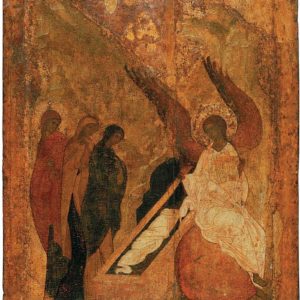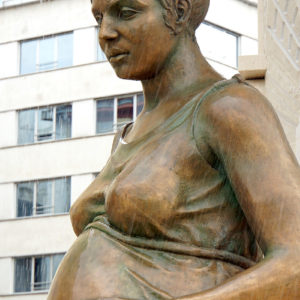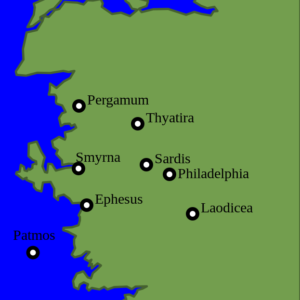Are you interested in sharing the faith more? Are you worried that you don’t know how to answer your co-workers’ and friends’ questions? 1 Peter 3:15 calls us to “always be prepared to make a defense to any one who calls you to account for the hope that is in you, yet do it with gentleness and reverence; and keep your conscience clear, so that, when you are abused, those who revile your good behavior in Christ may be put to shame.” That’s a tall order. Here are ten tips that might help.
Category: Uncategorized
Sola Scriptura and the Empty Tomb
Was sola Scriptura true during the time of the Apostles?Were the Apostles and the first-century Christians bound to follow Scripture alone? These are the two options. You can claim, despite the clear evidence to the contrary, that the Apostles and early Christians believed in Scripture alone. But doing so both undermines John’s faith in the Resurrection and renders the New Testament irrelevant. Or you can concede that the Apostles and early Christians didn’t believe in Scripture alone. But then you have to throw out all of the alleged “Scriptural proofs” for sola Scriptura, and concede that it’s a post-Apostolic man-made tradition that contradicts the written word of God.
Biblical Double Standards
If Protestants held every book of the Bible to the standards that they hold the books that they reject, they would end up missing a huge number of their books. And conversely, if they approach the Deuterocanon with the same charitable reading with which they approach (say) Judges, there would be no reason not to include it as part of the Scriptures. We can see that clearly by looking at 5 alleged “Biblical contradictions” in the Deuterocanon.
Beware of Telescopic Charity
There’s a spiritual malady afflicting our homes, our workplaces, our political conversations, and how we speak to (and of) one another, both on- and offline. A major part of the cure is learning to recognize that those who are hardest to stand are often the ones closest to us, and that the call to charity is often in the little things of daily life.
What if the Protestant Interpretation of John 6 is Correct?
Let’s talk about the Bread of Life discourse in John 6:22-70. The Catholic interpretation makes sense, but it’s a shocking one. We think that this lengthy passage is about the Eucharist, and that Jesus Christ literally means that we eat His Flesh and drink His Blood in Communion. This teaching, radical to twenty first-century ears, was no less radical to first-century ears, and even many of Jesus’ own disciples stopped following Him upon hearing it.
Protestants typically disagree with this interpretation, arguing that Jesus’ commands that we should eat His Flesh and drink His Blood are just metaphors. Often, both sides are so busy debating the credibility of the Catholic interpretation that neither stop to seriously ask, “Does the Protestant interpretation make any sense?” The obvious question is if Jesus is speaking metaphorically, what’s it a metaphor for? What is Jesus actually saying?
The Trouble with Jerome
Protestants frequently claim that there are only 66 books in the Bible. This isn’t the Bible used by early Christians, by Luther, by Calvin, or by the Catholic, Orthodox, or Coptic Churches. So where do they draw support? Strangely, they cite a single fourth century Church Father: St. Jerome. But there’s a problem with that approach. Or more accurately: four problems.
3 Pro-Life Answers to Pro-Choice Arguments
Seth Millstein at Bustle has compiled a list of 11 pro-choice responses to common pro-life arguments. This is my response to his three biggest points: about the life of the unborn child, about whether sex carries with it a responsibility for motherhood, and about whether “rape exceptions” make any sense.
How the Early Church Disproves Protestant Claims About the Eucharist and the Church
Why should we care about the writings of the Church Fathers, or early Church history? Consider the Church of the early 100s. Protestants typically (a) reject the doctrine of the Real Presence of Christ, that the Eucharist becomes His Flesh and Blood; and (b) believe that once you are saved, you’ll never permanently fall away from the faith. But holding these views would require believing that the very same Symrnaean and Ephesian Christians praised by Christ in 96 A.D. are heretics by 107 A.D.
Why Care About the Perpetual Virginity of Mary?
Why do Catholics care about the perpetual Virginity of Mary? And does the doctrine make any sense, or does it just reflect an unhealthy disdain for marital sex? After all, why shouldn’t a married woman, like St. Mary, engage in sexual relations with her husband? Such relations aren’t just not sinful: they’re good. So why have Christians from the time of the earliest days of the Church onwards consistently insisted upon Mary’s perpetual virginity, even after the birth of Christ?
C.S. Lewis’ Surprising Argument for the Papacy
C.S. Lewis, in a passage in Mere Christianity, lays out a surprising case for the papacy… a case that might have been surprising to the man himself, given that he was an Anglican.








